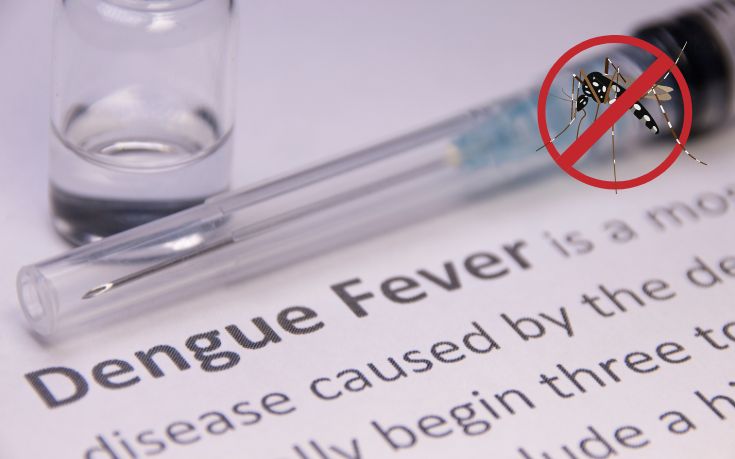The viral infection of dengue fever is a fear-filled mosquito-borne infection that is said to be feared because of the speed at which they attack and the symptoms that come with the attack. Early detection is a major part of management and impact mitigation. The NS1 test is done as one of the best diagnostic technologies towards this respect; however, for how long should you consider an NS1 test? Knowing the right time to go for the NS1 test can drastically alter the management and outcome.
Dengue Fever
Dengue fever is an acute disease caused by the dengue virus and transmitted through the bite of the infected Aedes mosquito. The disease may vary from mild to severe and is characterized by the sudden onset of high fever, severe headache, pain behind the eyes, pain in the joints and muscles, rash, and mild bleeding. Symptoms usually begin 4-10 days after the mosquito bite. Because these symptoms are very similar to most viral infections, the necessity of differential and timely diagnosis becomes imperative.
Early Detection is Key
Early detection of dengue fever has a big difference in terms of treatment and recovery. With this, the NS1 test comes in. The NS1 test, otherwise known as the nonstructural protein 1 test, identifies the presence of the NS1 antigen of the dengue virus in the blood. The amount of this antigen produced by the body can reach quite a high level during the onset of the infection, which makes the test pretty effective during the first few days of illness.
Dengue Fever: Identification of Symptoms in the Early Stages
Conduct NS1 testing if you, or someone you know, display further symptoms, such as high fever, severe headache, pain behind the eyes, muscle and joint pains, nausea, vomiting, or skin rash. These signs often are sudden in onset and escalate rather quickly. Because the disease progression is fast, it is wise to consult with a doctor early.
Best Time to Test
The NS1 antigen can be detected from the first day of fever until about day 5-7. The effectiveness of this means of detection makes the NS1 test to be very useful in early diagnosis. For any suspicion of symptoms, you could always get the NS1 test done. In this way, early testing will, with great certainty, confirm the dengue virus, thus enabling any healthcare service provider to start the management involved immediately.
Differential Diagnosis with Other Diseases
In endemic regions for dengue, there are a variety of other febrile illnesses, which can manifest in an almost similar way to dengue. These are differentiated by the NS1 test, thus allowing for specific treatment. If treatment is not specific or there is a delay in diagnosis, then there are more chances of making the condition worse by inappropriate handling.
Advantages of NS1 Test
One of the major advantages of the NS1 test it is very rapid and accurate. With the conventional antibody tests, the test is made based on a rise in the immune response of the body, which takes a while. On the other hand, the NS1 test looks out for the virus itself and hence gives it results in a matter of hours. This quick response is indeed helpful in ensuring early treatment, which consequently prevents complications and enhances recovery.
Virus Serotype Tracking
The NS1 test can differentiate between the four serotypes of the dengue virus. This information is very important for care providers and public health professionals so that outbreaks can be followed carefully and measures of control can be initiated. With a known serotype in circulation, better strategies can be developed for the prevention of the spread of dengue. In the meantime, more importantly, detection in those at risk for severe dengue is achieved by usage of the NS1 test. Severe dengue, on the other hand, leads to causes of remaining plasma leakage, accumulation of fluid, respiratory distress, severe bleeding, and organ impairment. Its early diagnosis will enable healthcare providers to carefully monitor and give supportive care to patients enrolled, thus preventing the progression of severe dengue.
Limitations of the NS1 Test
Though the NS1 test is highly effective in the early stages of dengue, it comes with a caveat. It has a declining accuracy after the first week of infection since the levels of the NS1 antigen are depleted in the blood. Therefore, if the symptoms continue beyond even five days, it is suitable to recommend a patient for further tests in the form of IgM and IgG, among others. These may further aid in the identification of the problem and possibly provide a treatment solution.
Access and Availability
Other factors include the availability and accessibility of the NS1 antigen to the test in differing regions and forms of healthcare setup. It could be weakly accessible and therefore may cause a delay in diagnosis that could have been made on time. In case one notices symptoms of this condition, he or she should consult a medical advisor and present a test option which is the most accessible to a care provider.
Preventive Measures and Public Awareness
Positive Solution: Besides early testing, preventive measures significantly help manage dengue fever. Reducing mosquito exposure by using insect repellent, wearing protective clothes, and using mosquito nets will help prevent infection. Reducing mosquito breeding grounds by getting rid of stagnant water and maintaining a clean surrounding also cuts the risk of dengue transmission down.
Community Education
Increased public awareness and community education on dengue fever and the importance of early testing are needed. Communities in dengue-endemic areas must be educated on the symptoms, preventive measures, and prognosis of this ailment. Healthcare authorities should advocate making healthcare facilities capable of running the NS1 test and returning results to patients in time.
Timing is Everything
Early detection and timely intervention are the two mainstays for the control of dengue. In such a situation, with the early action needed to identify the virus on the initial days of its spread, the NS1 test remains a valuable tool. During dengue symptoms, do not step back to see a professional for medical consultation and inform them to take the NS1 test up to five days after the day of infection. Much more, it might only guarantee better results, prevention of severe complications, and that you will receive proper care. Be aware, be informed, and take good care of your health this dengue season.











